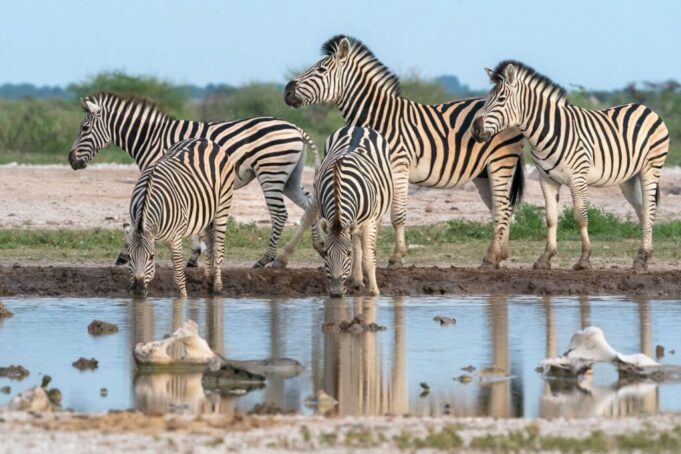Located in the western reaches of Zambia, Liuwa Plain National Park stands as a testament to conservation efforts and the beauty of African landscapes. Spanning over 3,600 square kilometers, Liuwa Plain is a vast expanse of grasslands, wetlands, and seasonal floodplains teeming with diverse wildlife and offering visitors a unique Zambia safari experience unlike any other in Africa.
History and Conservation Efforts
Liuwa Plain National Park has a rich history dating back centuries. Historically, the area served as a royal hunting ground for the Lozi people, who have inhabited the region for generations. However, it wasn’t until the late 19th century that Liuwa Plain gained international recognition through the travels and writings of explorers such as David Livingstone.
Conservation efforts in Liuwa Plain began in the 1970s when the Zambian government, in collaboration with international conservation organizations, established the park to protect its unique ecosystem and diverse wildlife. Today, the African Parks organization manages Liuwa Plain National Park in partnership with the Zambian government, working tirelessly to preserve its natural heritage and promote sustainable tourism.
Wildlife and Biodiversity
Liuwa Plain is renowned for its remarkable wildlife diversity, including large herds of wildebeest, zebra, and other herbivores that roam the grassy plains in search of food and water. The park is also home to significant populations of predators such as lions, cheetahs, and hyenas, which play a crucial role in maintaining the park’s ecological balance.
One of the most iconic features of Liuwa Plain is its annual wildebeest migration, often referred to as the second-largest wildebeest migration in Africa after the Serengeti. Every year, thousands of wildebeest embark on a journey across the plains in search of fresh grazing grounds, attracting predators and offering visitors a front-row seat to one of nature’s most spectacular events.
In addition to its large mammal populations, Liuwa Plain is a haven for birdwatchers, with over 330 bird species recorded within the park’s boundaries. From majestic raptors soaring overhead to colorful waterfowl wading in the wetlands, Liuwa Plain offers endless opportunities for bird enthusiasts to observe and photograph some of Africa’s most stunning avian species.
Safari Experiences
Visitors to Liuwa Plain National Park can experience the wonders of the African wilderness through a variety of safari activities. Guided game drives offer an opportunity to explore the park’s vast landscapes and encounter its resident wildlife up close. Whether tracking a pride of lions on the hunt or witnessing a herd of wildebeest crossing a river, each game drive promises unforgettable moments and unparalleled photo opportunities.
For those seeking a more immersive experience, walking safaris provide a chance to explore Liuwa Plain on foot accompanied by experienced guides. Walking safaris offer a unique perspective on the park’s flora and fauna, allowing visitors to appreciate the intricate details of the ecosystem while gaining insight into the challenges and triumphs of conservation efforts in the region.
In addition to game drives and walking safaris, Liuwa Plain National Park offers seasonal experiences such as birdwatching tours, cultural visits to nearby communities, and night drives for observing nocturnal wildlife activity. Whether embarking on a day-long adventure or camping under the stars, visitors to Liuwa Plain are guaranteed an authentic African safari experience unlike any other.
Accommodation and Facilities
Accommodation options in Liuwa Plain National Park range from rustic bush camps to luxury tented lodges, each offering a unique blend of comfort and immersion in the natural surroundings. Many of the lodges and camps in the park are eco-friendly, designed to minimize environmental impact while providing guests with modern amenities and personalized service.
Campgrounds are also available for visitors who prefer a more traditional camping experience, allowing them to immerse themselves fully in the sights and sounds of the African bush. Whether staying in a luxury lodge or pitching a tent under the stars, visitors to Liuwa Plain can look forward to warm hospitality, delicious cuisine, and unforgettable wildlife encounters throughout their stay.
Conservation and Sustainable Tourism
Central to the mission of Liuwa Plain National Park is the commitment to conservation and sustainable tourism practices. African Parks, in collaboration with local communities and government authorities, implements a range of initiatives aimed at protecting the park’s natural resources, supporting local livelihoods, and promoting environmental education and awareness.
Through community engagement programs, residents living near the park are empowered to participate in conservation efforts and benefit from the opportunities created by tourism. By providing employment, training, and revenue-sharing opportunities, Liuwa Plain National Park contributes to the socio-economic development of surrounding communities while safeguarding the region’s natural heritage for future generations to enjoy.
Conclusion
Liuwa Plain National Park is a true gem of Africa, offering visitors a chance to experience the untamed beauty of the continent’s wilderness in all its glory. From the awe-inspiring wildlife spectacles to the tranquil landscapes and vibrant cultures, Liuwa Plain captures the essence of Africa’s natural and cultural heritage in a way that leaves a lasting impression on all who visit.
As a beacon of conservation and sustainable tourism, Liuwa Plain serves as a model for protected areas worldwide, demonstrating the profound impact that dedicated stewardship and community engagement can have on preserving our planet’s most precious ecosystems. Whether exploring the park’s vast plains on a game drive, witnessing the drama of the wildebeest migration, or simply marveling at the diversity of life that calls Liuwa Plain home, visitors to this extraordinary destination are sure to be inspired by the wonders of the African wilderness.







